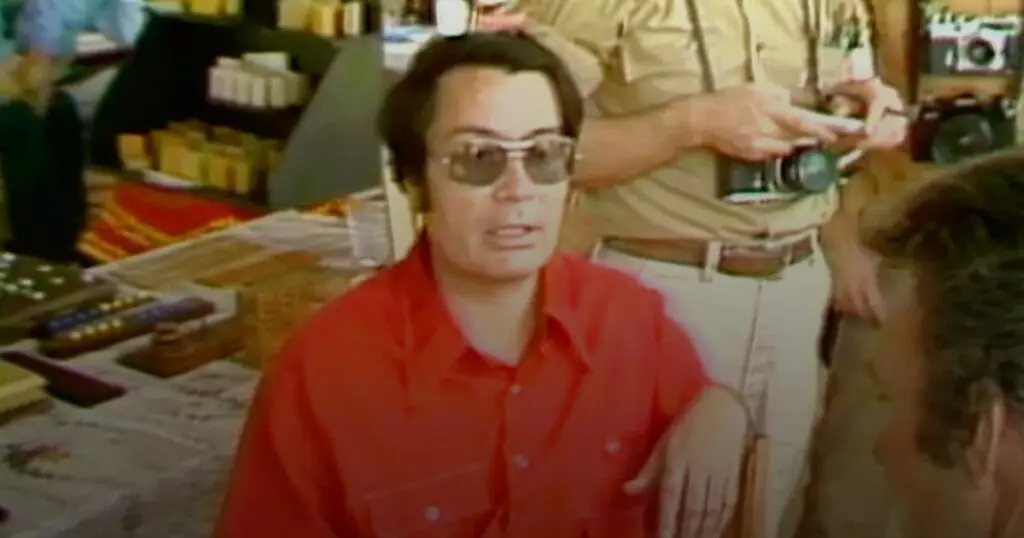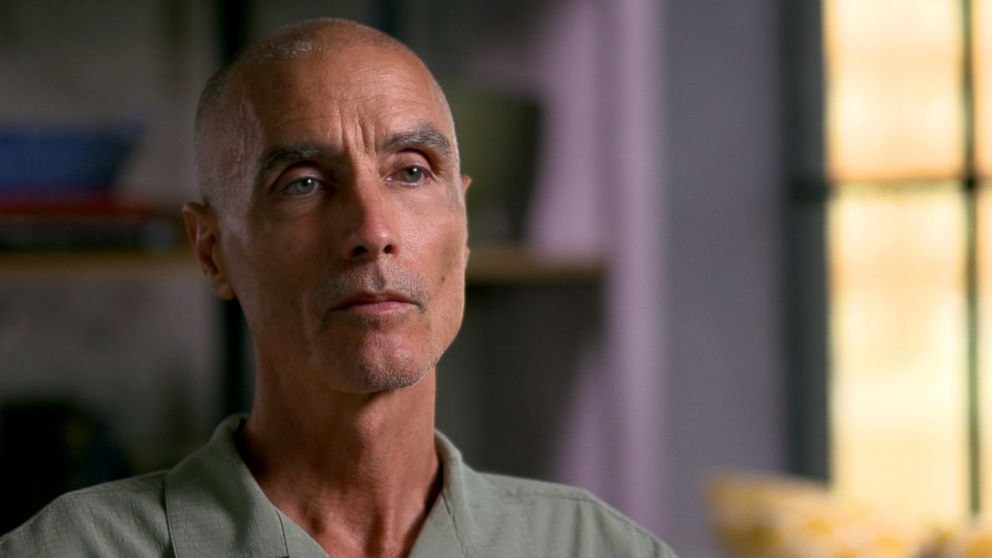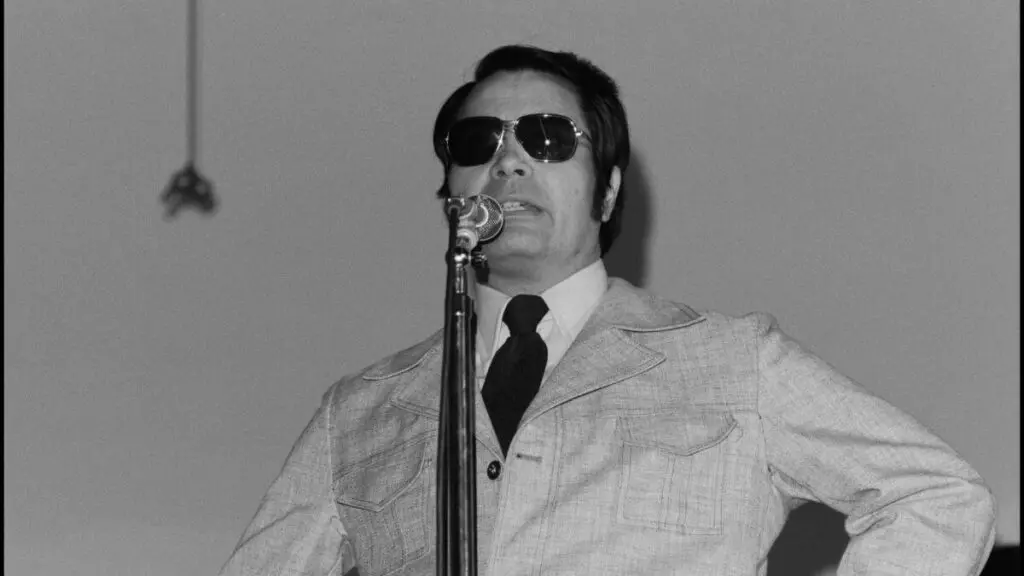I do not know how, but I already knew about The Jonestown Massacre before watching this documentary series, so I’ve imprinted the memory of it somewhere in my subconscious. I’ve seen the footage before of multiple dead bodies surrounding the land claimed by The Peoples Temple. My first naive question was: How were 909 people influenced to partake in a murder-suicide? Should such a question be asked? Well, I think it is important, at least, to stop history from repeating itself.
Even today, I’m not entirely convinced that people understand religious cults. They’ve always intrigued me, but I’ve never understood how they fester. I’ve always been wary that there’s a fragile line between religious faith and cult-like behavior, and the steps between them are small, but documentaries often misunderstand that audiences need the reason.
Hulu, in conjunction with National Geographic, has provided a 3-part series, Cult Massacre: One Day In Jonestown, which highlights the horrors instigated by Jim Jones, cult leader of Jonestown. Using footage from several fatal days, the series marries up a story of tragic events in 1978 that led to the mass murder-suicide of the closed community.
What’s most compelling is that the violent event was documented almost entirely from the day Congressman Leo Ryan decided to visit. Today, cult-like behavior is seemingly behind closed doors, stowed from the public. The footage brings viewers to that day, merging anecdotal statements and highlighting the confusing narratives between myth and fact. Was Jim Jones a psychopath, or was he bringing a socialist ideal? The series brings the viewer to a time when cults were not fully understood.
The Documentary Provides An Understanding Of Those Who Suffered
Cult Massacre: One Day In Jonestown drills home why Jonestown was initially a success for Jim Jones. His preaching targeted minorities, the marginalized, the underprivileged, and the less fortunate. During a tense time in America, Jones offered a socialist utopia strongly linked to his faith—a place different from society, with no judgment but peace, fairness, and paradise. That’s what was sold.
And whether Jim Jones intended it to be that will always be a nuanced debate, but it did not become that. The documentary series highlights how it became an abusive and fear-mongering community led by condemned religious practices. The vulnerable were preyed upon and did not dare to move out of line. The series does a marvelous job highlighting how cults manifest from a seemingly meaningful and vibrant community to a hellscape that is difficult to escape.
Observing Historic Change

Jim Jones, Cult Leader of the Peoples Temple
There’s a seismic shift in history regarding our attitudes to cults. Suppose you have ever wondered why cults (religious or otherwise) are approached with care from a policing perspective. In that case, Jonestown is a sticking example of why America had to change after this deadly massacre. This was the greatest single loss of American life by deliberate acts until 9/11 occurred. The series understands the weight and guilt that happened after the killings. Politicians, journalists, and authorities only wanted to save the members of the cult. Nine hundred civilian deaths and the murder of a congressman and his acquaintances were an unimaginable consequence.
But this casts my mind to the true crime documentary on Netflix, Dancing for the Devil: The 7M TikTok Cult. This series highlights a real-life religious cult that still operates today. It uncannily has a similar, eerie leader who echoes identical sentiments to Jim Jones.
I’ve seen a few comments on that series where viewers are dismayed that families are not fighting more to raise awareness about what the cult is doing to their family members. But now I get it. A cult is a bear ready to be poked. Once poked, the danger is immediate. Jonestown proved one thing—putting too much attention on a cult can cause the leaders to lash out violently.
If there’s one message Cult Massacre: One Day In Jonestown gets right, it is that America had to change its approach: naming, shaming, and putting the spotlight on a cult can have the worst circumstances. They have to be attritionally worn down.
Jim Jones’ Son, Stephan, Is A Brave Addition To The Series

Stephan Jones (Credit – ABC News)
If I were Stephan Jones, I wouldn’t appear in any media to do with my father. I’d live an isolated life. It’s not deserving, of course, but I cannot even imagine what it’s like bringing answers to your father’s actions that led to a brutal mass murder-suicide, and you can tell in this series that he struggles with providing reasons.
However, having Stephan elevates the series to a different level. It’s a brave addition, especially with victims involved, because, whether we like it or not, even if Stephan is a victim himself, the optics will not be in his favor.
Having Stephan interviewed provided further perspective on cults and especially their leaders. He describes his father in a way I was not expecting: Jim Jones only had the Peoples Temple. It was him, and only him. He had nothing else. I believe Stephan was trying to give the documentary series an angle for debate. His father felt like he had no choice but to do what he did because there was no life to be had if the Peoples Temple ended, and he induced that ideology in his followers.
I walked away from Cult Massacre: One Day In Jonestown with a better understanding of cults. Yes, it’s horrifying, but we’ve become so desensitized to violence due to mass media that it was more welcoming to be educated than shocked. The documentary made me understand that it’s not as simple as walking into a closed community and shutting it down. There are legal implications for one, but two, the aftereffects can be far riskier.
This series does not change anything, but it’s at least a case study and a reminder of how cults can go wrong. The next time we get frustrated at the growth of Scientology or any other cult, we should remember Jonestown and the dangers. It’s never as simple as it looks.



